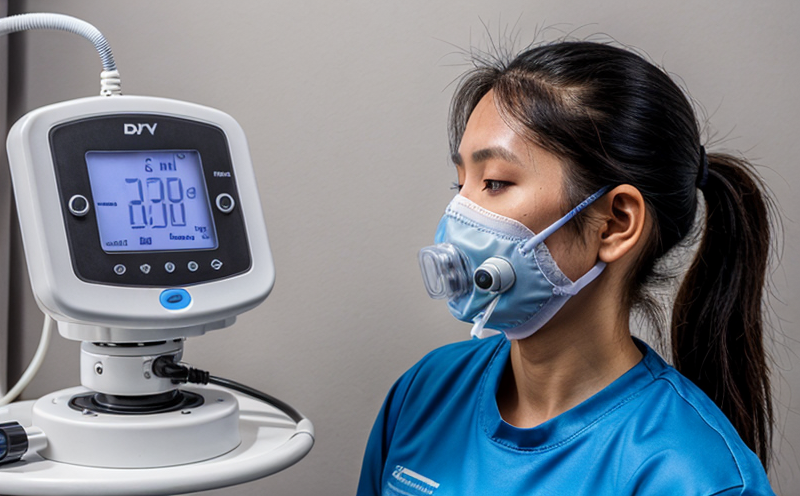ISO 5356-1 Conical Connector Strength Testing
The ISO 5356-1 standard specifies a method for determining the tensile, shear, and pullout strength of conical connectors used in medical devices. This testing is crucial for ensuring that connectors are capable of withstanding the stresses encountered during normal use without failure.
These connectors play a vital role in respiratory and ventilation systems where they connect various components such as breathing circuits, anesthesia delivery systems, and other medical devices. The strength and durability of these connectors directly impact patient safety by preventing leaks or disconnections that could lead to inadequate ventilation or oxygen supply.
The testing procedure outlined in ISO 5356-1 involves subjecting the connector to a series of mechanical loads designed to simulate real-world conditions. Specimens are typically prepared from actual device components, ensuring that the test results accurately reflect performance under expected stress levels.
Testing laboratories specializing in this service use sophisticated equipment capable of applying controlled forces and measuring displacement with precision. The apparatus used must meet stringent accuracy specifications as defined by ISO 5356-1 to ensure reliable test outcomes.
The testing process begins with careful preparation of the connector sample, ensuring it is free from any defects or contaminants that could affect the results. Once prepared, the connector is mounted in a testing machine that can apply both tensile and shear forces simultaneously if required by the standard.
During the test, real-time data collection systems measure critical parameters such as force applied, displacement, and strain rate. These measurements are logged throughout the test duration to provide comprehensive insights into how the connector behaves under stress. After reaching the specified limit load, the machine records the maximum load before failure.
The resulting strength values obtained from these tests are then compared against design specifications or industry benchmarks. Compliance with these standards is essential for medical device manufacturers seeking regulatory approval and ensuring patient safety.
Applied Standards
| Standard | Description |
|---|---|
| ISO 5356-1:2021 | Tensile, shear and pullout strength testing of conical connectors. |
| ASTM F749 | Tensile properties of small-diameter polymeric tubes and rod. |
Benefits
- Ensures compliance with international standards for medical device connectors.
- Reduces the risk of connector failures in critical applications like respiratory devices.
- Improves product reliability and enhances patient safety.
- Saves time by identifying design flaws early in development cycles.
Competitive Advantage and Market Impact
By offering ISO 5356-1 conical connector strength testing services, medical device manufacturers can gain a significant competitive edge. Compliance with this standard demonstrates a commitment to quality and safety, which is increasingly important in the healthcare industry.
This service helps companies differentiate themselves from competitors by ensuring their products meet or exceed regulatory requirements. For R&D engineers, having access to such testing facilities allows for continuous improvement of existing designs while exploring innovative solutions.
From a procurement perspective, sourcing components that have been independently tested according to ISO 5356-1 adds credibility to purchasing decisions and supports long-term partnerships with reliable suppliers. The ability to demonstrate robust testing procedures also strengthens relationships with regulatory bodies and insurance providers, potentially leading to favorable outcomes during audits or claims processes.
Ultimately, adopting these stringent testing protocols contributes positively towards building trust among end-users (patients), healthcare professionals, and stakeholders alike. It positions organizations as leaders in innovation and quality assurance within the medical device sector.





